| |
|
|
|
|
|
|
|
|
|
|
|
|
| |
 |
|
| |
田润德
编译文/图 2020-10-1
20:36 |
|
| |
|
|
|
|
| |
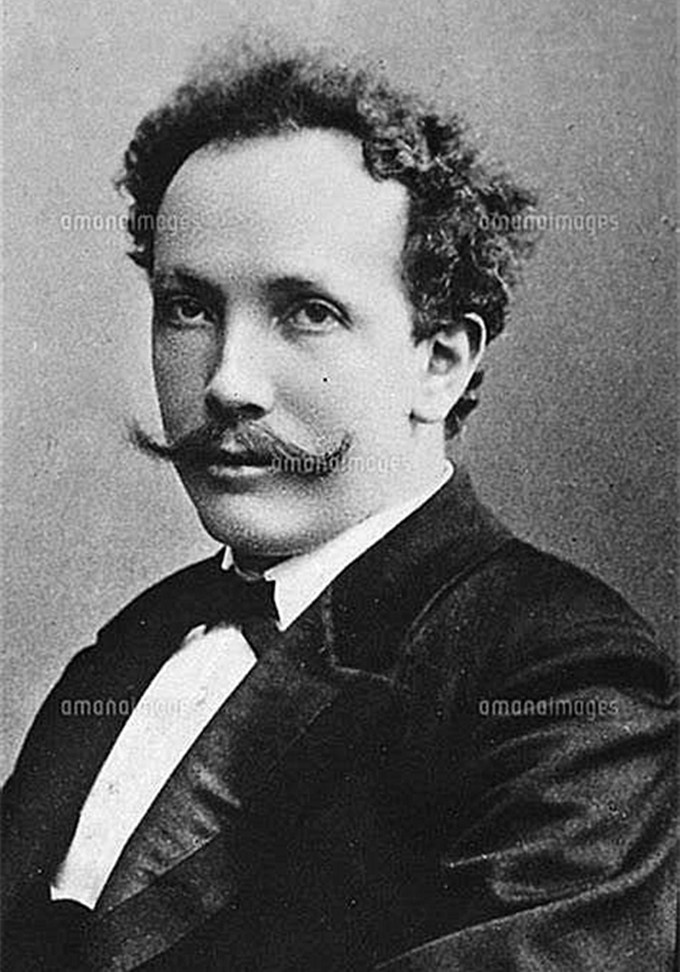 |
|
|
|
| |
理查·施特劳斯(Richard Strauss
1864-1949) |
|
|
|
| |
|
|
| |
Richard Strauss, Don Juan, op. 20 (21 min.)
|
|
|
|
| |
2013年2月3日,古斯塔夫·杜达梅尔,指挥柏林爱乐乐团,演绎理查·施特劳斯的交响诗唐璜。 |
|
|
|
| |
|
|
|
|
| |
音乐历史上的今天 1885年,21岁的理查·施特劳斯在迈宁根管弦乐团成为比洛(55岁)的助理指挥,同年11月1日升为首席指挥。
理查德·施特劳斯,1864年6月11日出生于德国慕尼黑。(1949年9月8日逝世,加米施-帕滕基兴),德国作曲家和指挥家。他是一名圆号手的儿子,六岁时开始作曲。在他20岁之前,他已经有了两部交响曲和一部小提琴协奏曲的重要首演。1885年,迈宁根管弦乐团的指挥汉斯·冯·布<e:1>洛任命施特劳斯为他的继任者。受到理查德·瓦格纳作品的强烈影响,他开始写纲领性管弦乐调诗,包括《唐璜》(1889)、蒂尔·欧伦斯皮格尔的《快乐的恶作剧》(1894-95)和《查拉图斯特拉》(1896)。1900年后,他专注于歌剧;他的第三部作品《莎乐美》(1903-05)是一部成功的作品。《Elektra》(1906-08)标志着施特劳斯与诗人雨果·冯·霍夫曼斯塔尔(Hugo
von
Hofmannsthal)富有成效的合作的开始,他与他一起创作了他最伟大的歌剧,包括《玫瑰骑士》(1909-10)。第二次世界大战期间,他一直留在奥地利,并在德国政府担任音乐职务,但后来他被洗清了与纳粹政权有关的不法行为。在创作了多年的小作品之后,他创作了几部杰出的晚期作品,包括《变形记》(1945)和《最后的四首歌》(1948)。
今日视频:1、古斯塔夫·杜达梅尔指挥柏林爱乐乐团演绎理查·施特劳斯的交响诗<唐璜>;2、蒂勒曼
指挥柏林爱乐演绎理查德·施特劳斯《玫瑰骑士组曲》。 |
|
|
|
| |
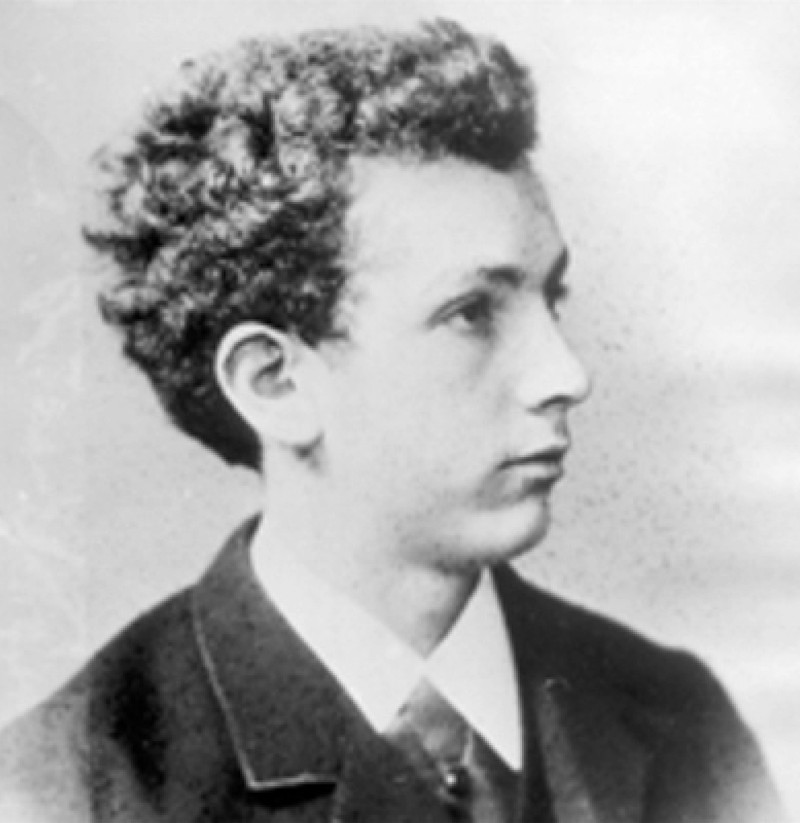 |
|
| |
年轻时代的理查.施特劳斯 |
|
|
|
| |
The young Richard Strauss |
|
|
|
| |
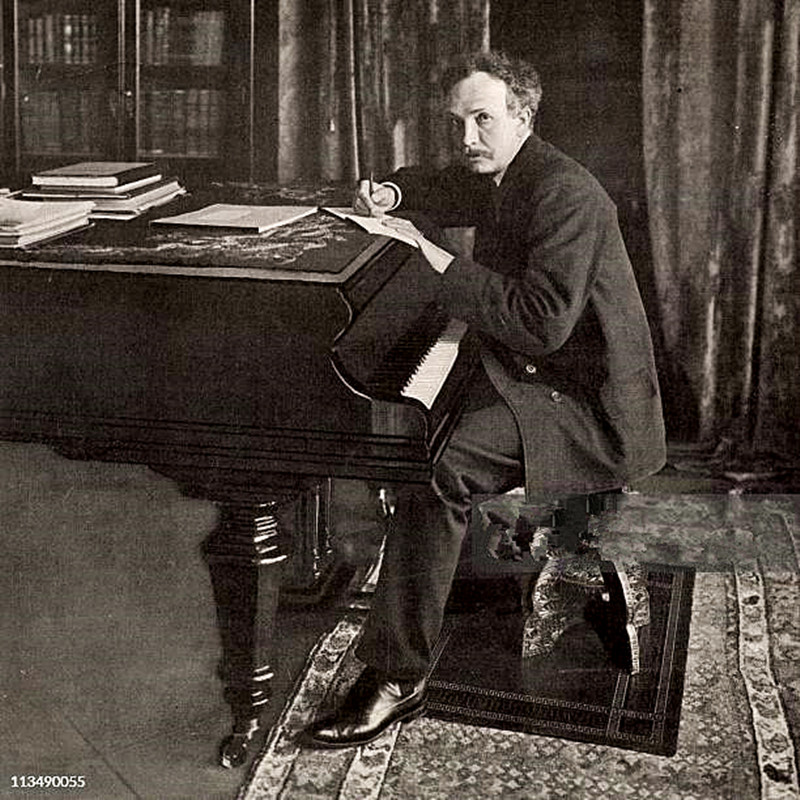 |
|
| |
理查.施特劳斯在创作中 |
|
|
|
| |
Richard Strauss in his创作
process |
|
|
|
| |
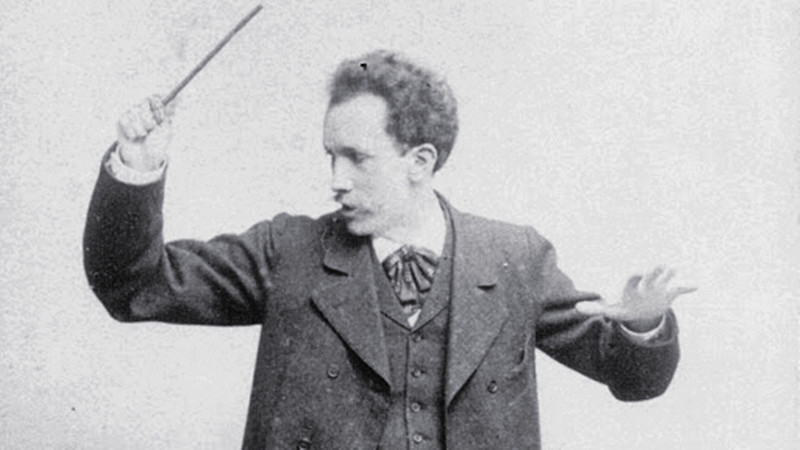 |
|
|
|
| |
理查.施特劳斯在指挥中 |
|
|
|
| |
|
|
|
|
| |
 |
|
|
|
| |
理查.施特劳斯珍惜和家人在一起 |
|
|
|
| |
|
|
|
|
| |
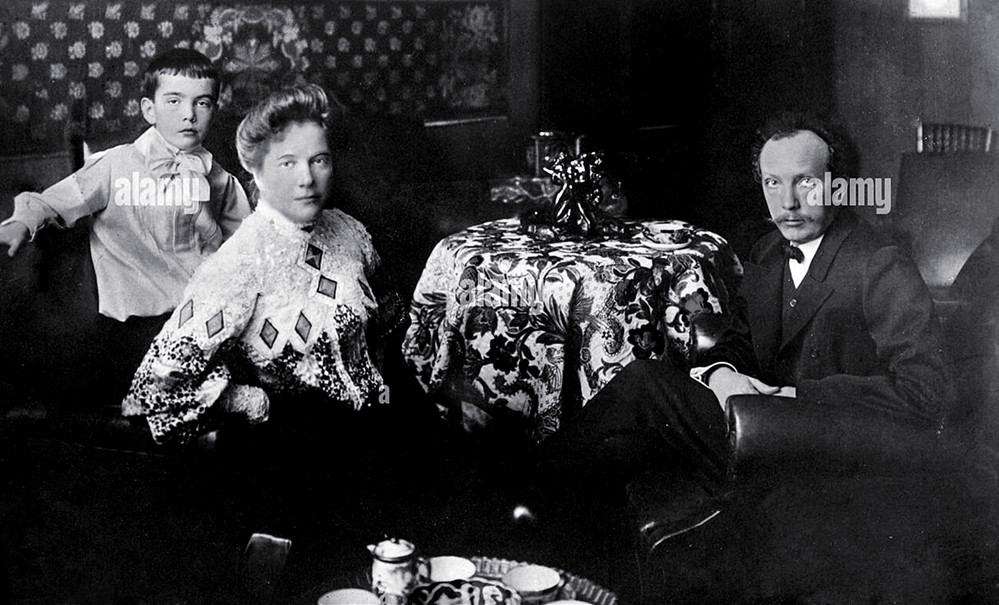 |
|
| |
理查.施特劳斯珍惜和家人相聚的时光 |
|
|
|
| |
Richard Strauss
cherished the time spent with his family. |
|
|
|
| |
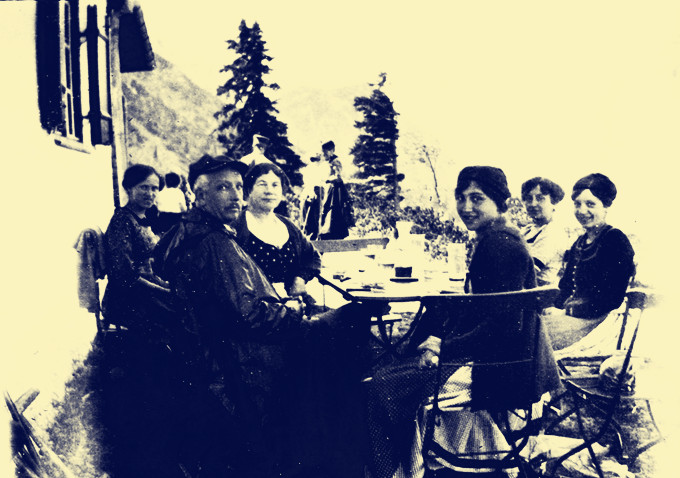 |
|
| |
理查.施特劳斯和家人在一起度假 |
|
|
|
| |
Richard Strauss was on vacation
with his family. |
|
|
|
| |
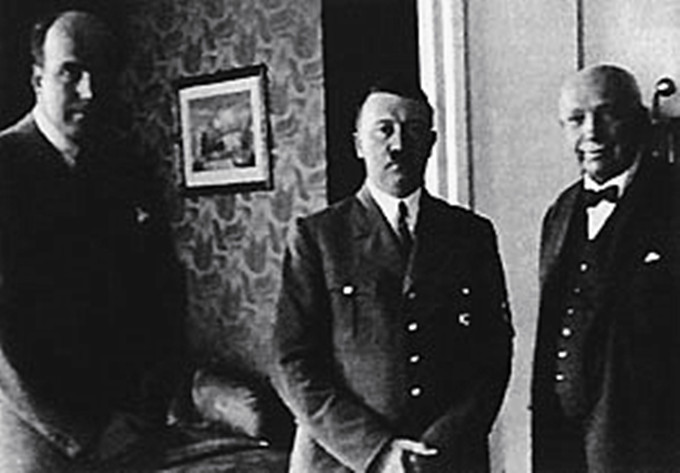 |
|
| |
1933年,希特勒会见斯特劳斯 |
|
|
|
| |
In 1933, Hitler met
Strauss. |
|
|
|
| |
鉴于理查德.斯特劳斯同时经历了二十世纪德国历史上多灾多难的第三帝国年代,这老头的“政治”生涯也是不得不提一下的:跟另一位同时代的德国音乐大师富特文格勒一样,斯特劳斯在纳粹当权后并没有离开德国以示抗议,而选择了留下。对于第三帝国对外宣传的工具,音乐也是必不可少的:宣传部长约瑟夫.戈培尔博士发起的帝国音乐家协会的主席当然是理查德.斯特劳斯不能推辞的头衔,戈林还给斯特劳斯在普鲁士国家委员会里谋上了一官半职。斯特劳斯不管是自愿还是被迫,在他晚年频频地在纳粹公众场合抛头露面,换来的是他的犹太媳妇与有一半血统的孙子生活在纳粹的灭绝制度下安然无恙。战争后期斯特劳斯去瑞士隐居,病死在蒙特勒。 |
|
|
|
| |
Given that
Richard Strauss experienced the tumultuous Third Reich era in
German history, his "political" career is also something that
cannot be ignored: Just like another contemporary German music
master, Furtwängler, Strauss did not leave Germany to protest
against the Nazis after their rise to power, but chose to stay.
For the propaganda tools of the Third Reich, music was also
indispensable: The chairman of the Imperial Musicians'
Association initiated by Minister of Propaganda Dr. Joseph
Goebbels was of course the title that Richard Strauss could not
refuse. Goering also gave Strauss a position in the Prussian
National Committee. Strauss, whether voluntarily or not,
frequently appeared in Nazi public events in his later years,
and what he got in return was that his Jewish wife and his
grandson with half-Jewish blood lived safely under the Nazi
extermination regime. In the later stage of the war, Strauss
went to Switzerland for seclusion and died of illness in
Montreux. |
|
|
|
| |
|
|
| |
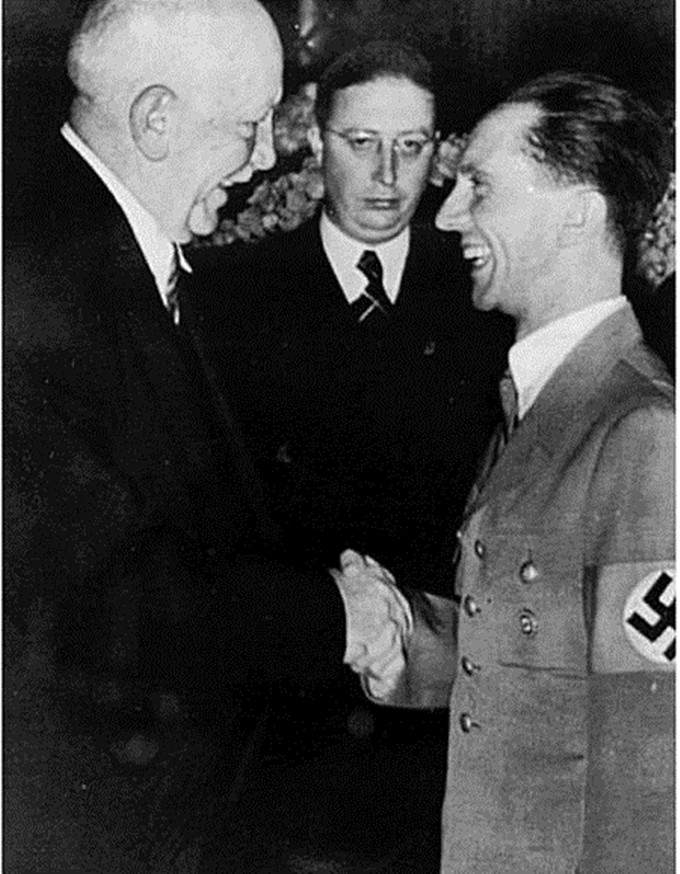 |
|
|
|
| |
1938年5月28日,演出结束后约瑟夫.戈培尔接见理查德.斯特劳斯。
历史总是后人去书写的,这里我就不再多取赘述了。手中有一套美国Music &
Arts公司1999年出版的唱片,编号:CD-1057(2),标题《斯特劳斯指挥自己的交响诗》。曲目有:《阿尔卑斯山》、《唐璜》、《梯尔的恶作剧》、《查拉图斯特拉如是说》、《麦克白》、《死与净化》。录音大多是1936年-1942年之间完成的,都是由帝国广播局录制(RRG)。 |
|
|
|
| |
On May 28,
1938, after the performance, Joseph Goebbels met with Richard
Strauss. History is written by future generations, so I won't
elaborate further on this. I have a set of records published by
the American Music & Arts Company in 1999, numbered CD-1057 (2),
titled "Strauss Conducts His Symphonic Poems". The tracks
include: "The Alps", "Don Juan", "The Trick of Thiel", "Thus
Spoke Zarathustra", "Macbeth", "Death and Purification". Most of
the recordings were made between 1936 and 1942 and were all
recorded by the Reich Broadcasting Office (RRG). |
|
|
|
| |
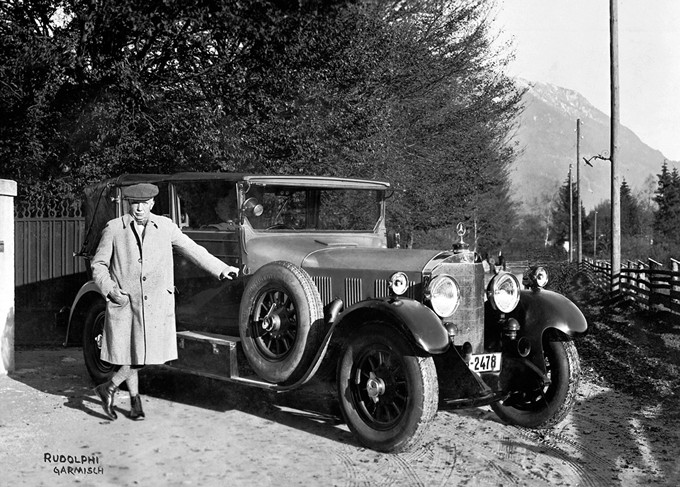 |
|
|
|
| |
理查.施特劳斯和自己的爱车 |
|
|
|
| |
Richard Strauss and his beloved car |
|
|
|
| |
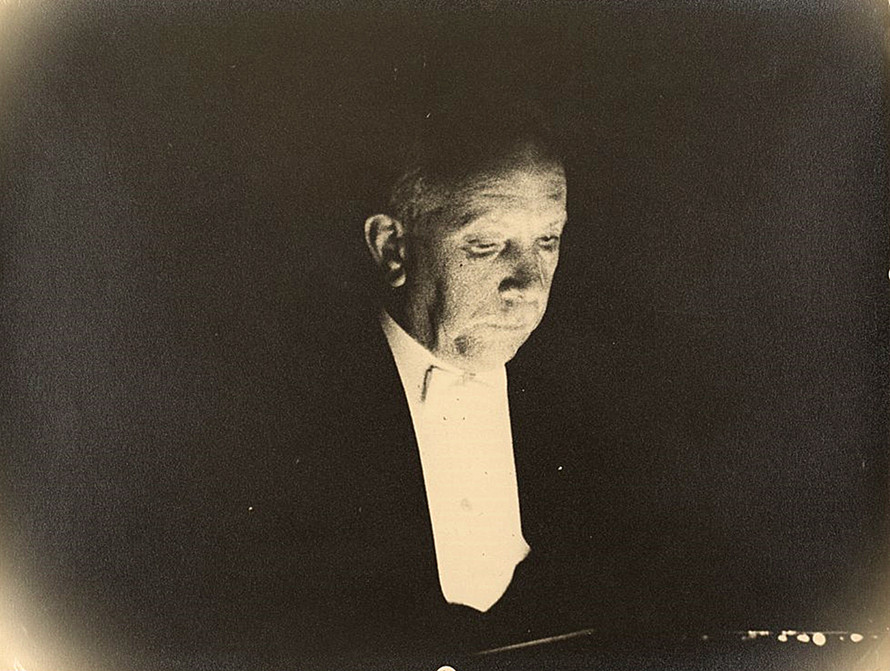 |
|
|
|
| |
理查·施特劳斯指挥歌剧《玫瑰骑士》 |
|
|
|
| |
Richard Strauss
conducted the opera "The Knight of the Rose" |
|
|
|
| |
萨义德论理查·施特劳斯 |
|
|
|
| |
理查·施特劳斯去世将近半世纪至今,他在二十世纪音乐里的角色仍无定论。他的才华、他的专业素养、他每每非比寻常的音乐想象力,都无人置疑。但是,初期涉猎半音主义之后,他的作品一直扎实留在瓦格纳、勃拉姆斯建立的调性传统之内,虽然他也以别人做不到或不曾做过的方式阐释了那个传统。第三帝国建立之后很久,甚至第三帝国结束之后,他都写歌曲、歌剧、室内乐、应景的管弦乐曲,引起他和第三帝国是不是共犯、他是不是无辜的问题;同时,他似乎把他相当狭窄的美学发展成一种表现法,这表现法可以粗略比拟于早期维也纳乐派、斯特拉文斯基及巴托克达到的表现境界。他那件富于沉思、感人甚深的作品《变形》(Metarn,or
ph,osen)就是一个例子,此作是二十世纪音乐顶峰之一,写于1940年代,使用的是他四十年前就已成熟的语法。
音乐以外的因素,诸如性格、回忆、态度,对有力的音乐演出有多大影响,在罗伯特·萧(Robert
Shaw)领导的音乐里可以看到佐证。罗伯特·萧是亚特兰大交响乐团指挥,三十年前创办“罗伯特·萧合唱团”而开始知名,尤其因为在托斯卡尼尼(
Toscanini)版的贝多芬《庄严弥撒曲》(Miss口solem”is)合唱部分,他带来美国最高的合唱团造诣。他有现代人的矫饰作风,然而他演出的 音乐绝无丝毫矫饰之处:在莫扎特的C小调弥撒曲(绝对是莫扎特宗教音乐的顶峰)里,他气魄宽宏、每每宁重勿轻的旋律线和那些巨大的高潮,以及在法库斯尼(Rudolf
Firkusny)仿佛不太情愿担纲独奏的贝多芬《合唱幻想曲》里,他所表现的力量,都令我印象深刻。在音乐生活里,罗伯特·萧是今之古人,较之于年轻一辈的当红角色狄·瓦特(Edo
De Waart)与史瓦兹,尤其如此。他明显是一个自认为上台应该言之有物、提出理念的人,年轻一辈则给人有效率的生意人的印象,在赶飞机途中就能读完任何乐谱,轻舟而渡任何困难。这第二种做音乐的方式,我们很难接受,因为为期两个月的音乐节,填满(如节目单说的)M、B、H(莫扎特、贝多芬、海顿)数十部作品,而且演出没有一定顺序,你必须全力以赴、按部就班,才可能乱中有序。实际情况不是这样,而是一场音乐会接一场音乐会的例行公事;伟大的音乐不是写来让你这样例行虚应故事的。 |
|
|
|
| |
Sayyid
on Richard Strauss |
|
|
|
| |
It has
been nearly half a century since Richard Strauss's death, but
his role in 20th-century music remains undetermined. His talent,
his professional quality and his extraordinary musical
imagination are all beyond doubt. However, after initially
delving into semitonism, his works have remained firmly within
the tonal tradition established by Wagner and Brahms, although
he has interpreted that tradition in ways that others cannot or
have never done. Long after the establishment of the Third Reich
and even after its end, he wrote songs, operas, chamber music
and seasonal orchestral pieces, raising questions about whether
he and the Third Reich were accomplices and whether he was
innocent. At the same time, it seems that he developed his
rather narrow aesthetic into a form of expression, which can be
roughly compared to the realm of expression reached by the early
Viennale School, Stravinsky and Bartok. His contemplative and
deeply touching work "Metarn" (or ph,osen) is a case in point.
This piece is one of the peaks of 20th-century music, written in
the 1940s and using grammar that he had already matured forty
years earlier. How much influence factors other than music, such
as personality, memory and attitude, have on a powerful musical
performance can be verified in the music led by Robert Shaw.
Robert Shaw is the conductor of the Atlanta Symphony Orchestra.
He became well-known for founding the "Robert Shaw Chorus"
thirty years ago, especially for the choral part of the
Toscanini version of Beethoven's "solem" (Miss Solem "is), where
he brought the highest level of choral proficiency in the United
States. He has the pretentious style of modern people, yet the
music he performs has no trace of pretentiousness at all. In
Mozart's Mass in C minor (which is definitely the peak of
Mozart's religious music), his bold and magnanimous melodic
lines and those huge climaxes, as well as the power he
demonstrated in Beethoven's Choral Fantasia, in which Rudolf
Firkusny seemed reluctant to take on the solo role, all left a
deep impression on me. In the world of music, Robert Shaw is an
ancient figure, especially when compared to the popular young
characters Edo De Waart and Schwartz. He is clearly someone who
believes that when he takes the stage, he should have something
substantial to say and put forward ideas. The younger
generation, on the other hand, gives the impression of efficient
businesspeople, who can read any sheet music on the way to catch
a flight and navigate through any difficulty with ease. This
second way of making music is hard for us to accept because a
two-month music festival is filled with dozens of works by M, B,
and H (Mozart, Beethoven, Haydn) as stated in the program list,
and there is no fixed sequence for the performances. You have to
go all out and proceed step by step to achieve order in the
chaos. The actual situation is not like this; it's just a
routine of one concert after another. Great music is not written
to make you go through the motions like this. |
|
|
|
| |
萨义德小传: |
|
|
|
| |
萨义德(1935-2003)是二十世纪最具影响力的知识分子,也是令人跌破眼镜的乐评家。1935年生于巴勒斯坦的耶路撒冷,接受过英式教育,取得哈佛大学博士学位,哥伦比亚大学英文系与比较文学系教授,担任The
Nation杂志乐评,著作等身,包括《乡关何处》(又译《格格不入》)、《文化与帝国主义》、《东方主义》。他由哥伦比亚大学出版社出版的著作包括《康德拉与自传小说》、《人文主义与民主的批评》、《开始,意图与方法》、《音乐的阐释》及《并行与吊诡》。2003年逝于纽约。 |
|
|
|
| |
Biography
of Sayyid:
Sayyid (1935 - 2003) was one of the most influential
intellectuals of the 20th century and an astonishing music
critic. Born in Jerusalem, Palestine in 1935, he received
British education and obtained a doctorate from Harvard
University. He was a professor in the English Department and
Comparative Literature Department of Columbia University, and
served as a music critic for The Nation magazine. He authored
numerous works, including "Where Is My Homeland?" (also
translated as "Out of Place"), "Culture and Imperialism", and
"Orientalism". His works published by Columbia University Press
include "Conrad and Autobiographical Fiction", "Humanism and the
Critique of Democracy", "Beginning, Intention and Method", "The
Interpretation of Music", and "Parallelism and Paradox". He
passed away in New York in 2003. |
|
|
|
| |
Today in
the history of music
In 1885, at the age of 21, Richard Strauss became the assistant
conductor of the Meiningen Orchestra under the leadership of
Bohl (55 years old), and on November 1 of the same year, he was
promoted to the position of chief conductor. Richard Strauss was
born on June 11, 1864, in Munich, Germany. (He passed away on
September 8, 1949, in Garmisch-Partenkirchen). He was a German
composer and conductor. He was the son of a trombonist and began
composing at the age of six. Before the age of 20, he had
already had the premieres of two symphonies and one violin
concerto. In 1885, Hans von Bülow, the conductor of the
Meiningen Orchestra, appointed Strauss as his successor.
Influenced strongly by the works of Richard Wagner, he began to
write programmatic orchestral poems, including "Don Juan"
(1889), "The Merry Pranks of Till Olenspiegel" (1894-95), and
"Zarathustra" (1896). After 1900, he focused on operas; his
third work, "Salome" (1903-05), was a successful piece.
"Elektra" (1906-08) marked the beginning of his fruitful
collaboration with the poet Hugo von Hofmannsthal, with whom he
created his greatest operas, including "The Knight of the Rose"
(1909-10). During World War II, he remained in Austria and held
a music position in the German government, but later he was
cleared of any illegal activities related to the Nazi regime.
After creating many small works for many years, he composed
several outstanding late works, including "The Metamorphosis"
(1945) and "The Last Four Songs" (1948). Today's video: 1.
Gustav Dudamel conducts the Berlin Philharmonic Orchestra in the
performance of Richard Strauss' symphonic poem "Don Juan"; 2.
Tilmann conducts the Berlin Philharmonic in the performance of
Richard Strauss' "Suite from The Knight of the Rose". |
|
|
|
| |
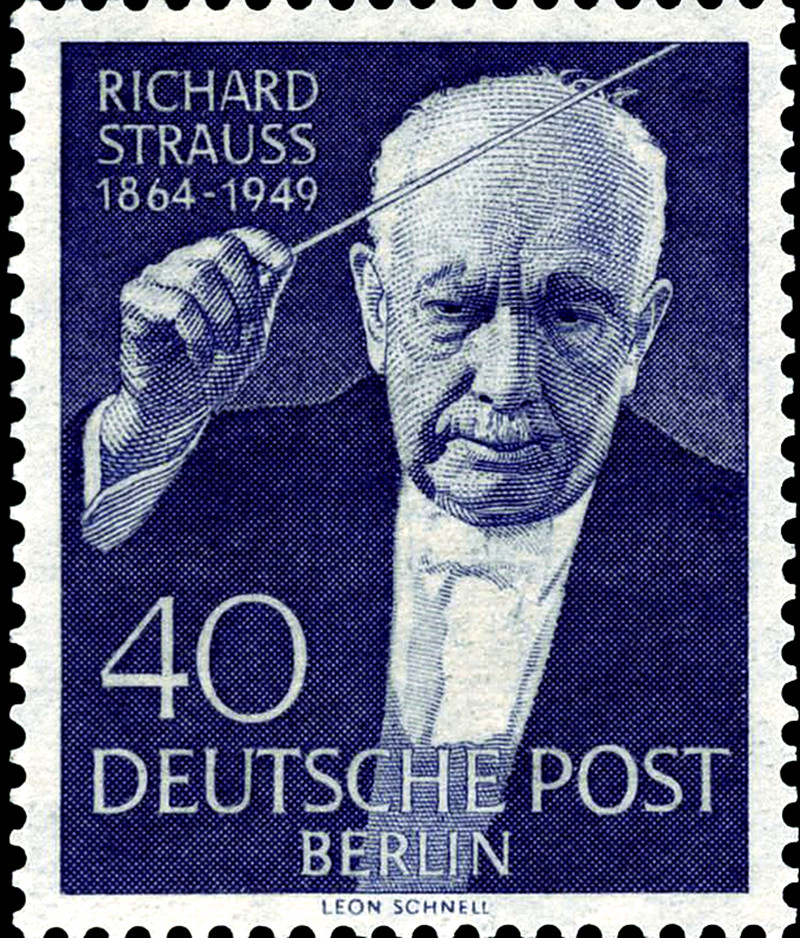 |
|
|
|
| |
德国邮政发行的理查·施特劳斯纪念邮票 |
|
|
|
| |
The
commemorative stamps of Richard Strauss issued by
Deutsche Post |
|
|
|
| |
|
|
| |
蒂勒曼/柏林爱乐 理查德·施特劳斯《玫瑰骑士组曲》 |
|
|
|
| |
Ashkenazy·Perlman:Franck-Sonata A major
Violin·Piano |
|
|
|
| |
Richard Strauss: Die Rosenkavalier, Suite,
op. 59 |
|
|
|
| |
演出时间:2019年12月7日
https://www.digitalconcerthall.com/zh/concert/52514-4?dch_ref=share |
|
|
|
| |
|
|
|
|
| |
未得原作者编者授权严禁转载www.mt77.com任何内容 |
|
|
|
|
|
|
|
|
|
|
|
|
|
|


